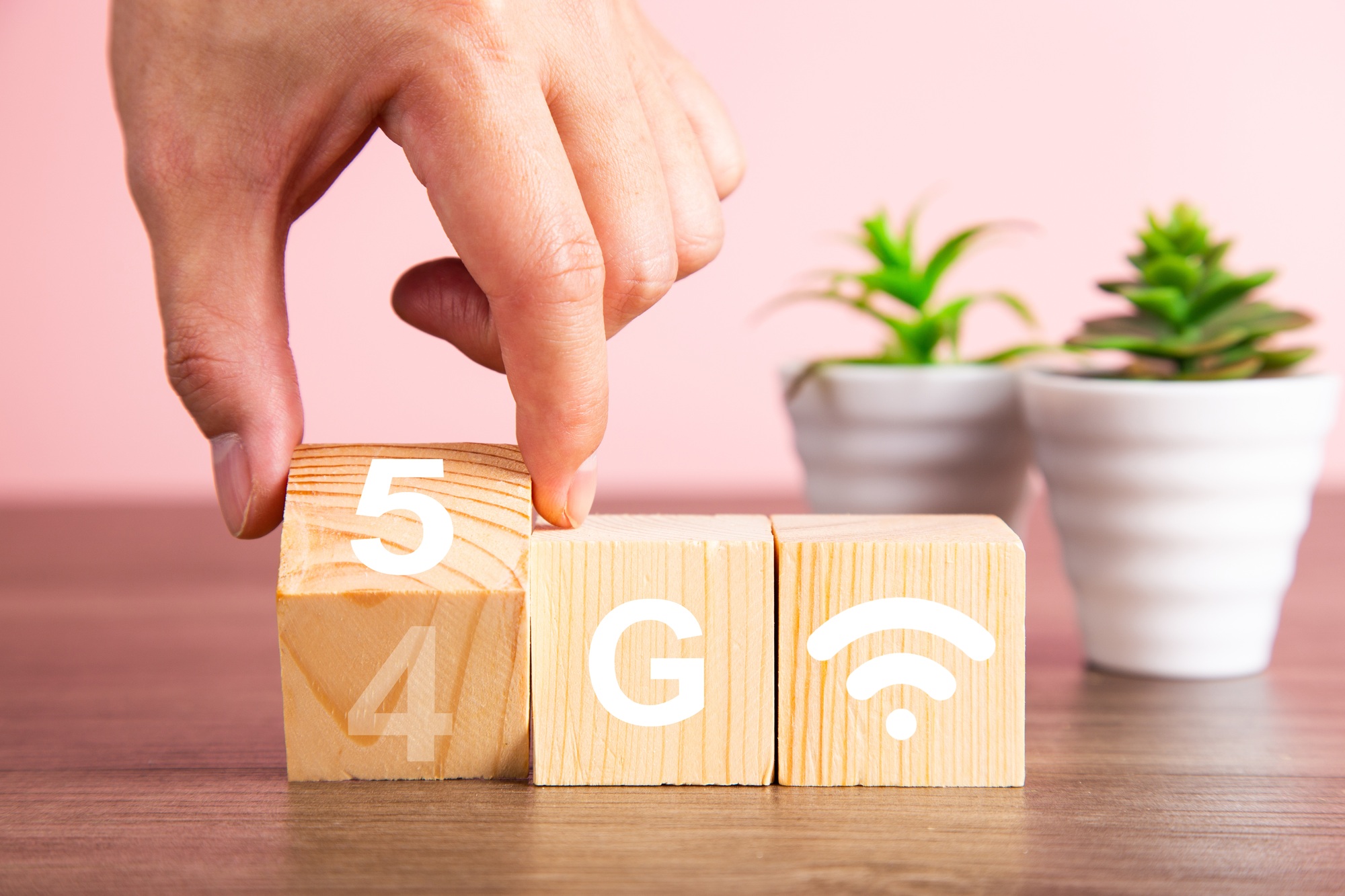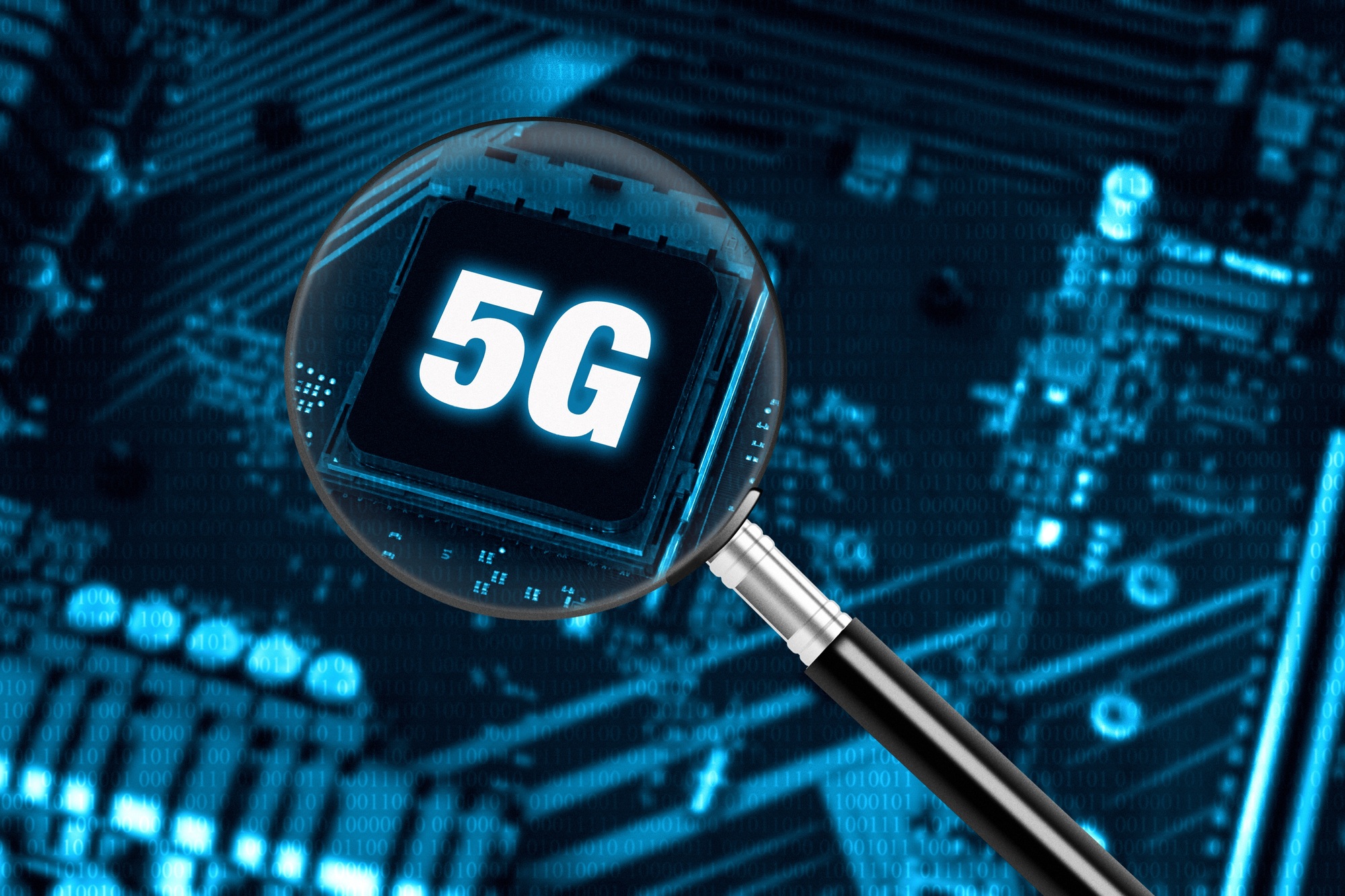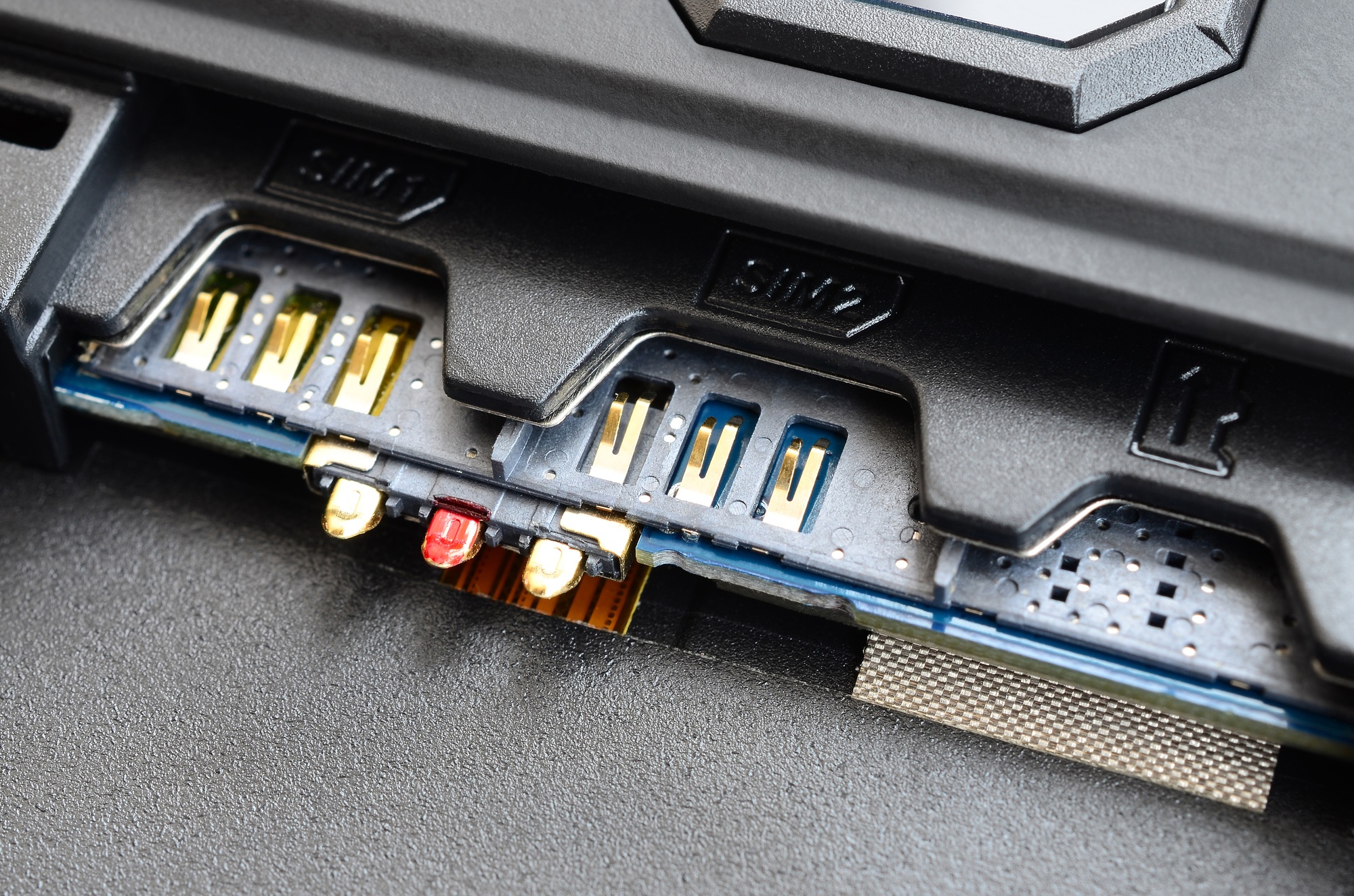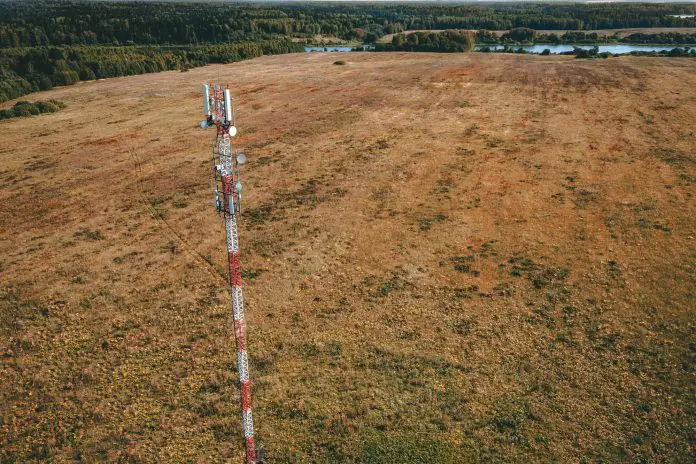Key Takeaways

- Understanding 5G: 5G is the fifth generation of mobile networks, designed for faster speeds and more reliable connections, impacting various technological interactions.
- Enhanced Speed and Latency: With download speeds up to 100 times faster than 4G and reduced latency to as low as 1 millisecond, 5G supports real-time applications and efficient communication.
- Increased Capacity: 5G can manage millions of devices simultaneously, which is crucial for small businesses utilizing IoT technology to improve operations and customer experiences.
- Transformative Applications: 5G enables innovative solutions such as smart home automation, enhanced streaming capabilities, and real-time data transfer for various sectors, benefiting consumer and industrial applications.
- Challenges in Implementation: Adoption of 5G involves significant infrastructure upgrades and addressing security concerns related to increased connectivity and potential cyber threats.
- Future of Small Businesses: Embracing 5G can enhance productivity, drive innovation, and support growth opportunities in an increasingly connected world.
You’ve probably heard the buzz about 5G, but what does it really mean for you? As the next generation of mobile networks, 5G promises to revolutionize how you connect, communicate, and interact with technology. With lightning-fast speeds and ultra-reliable connections, it’s set to enhance everything from streaming your favorite shows to powering smart cities.
Imagine downloading an entire movie in seconds or enjoying seamless virtual reality experiences. 5G isn’t just about speed; it’s about transforming your daily life and enabling innovations that were once only dreams. Dive in with us to explore what 5G is all about and how it’s poised to reshape the future of connectivity.
What Is 5G?

5G represents the fifth generation of mobile networks, designed to deliver faster data speeds and more reliable connections. This technology supports a wide range of applications, transforming how you interact with devices and services.
5G offers download speeds up to 100 times faster than 4G LTE, allowing users to download movies in seconds. It also reduces latency, enhancing real-time communication for applications like video conferencing, which is crucial for small business operations.
5G technology enables greater capacity, accommodating a higher number of devices simultaneously. This characteristic benefits small businesses, as it supports IoT devices that streamline operations and improve efficiency. For example, smart sensors in retail settings can optimize inventory management and enhance customer experiences.
5G’s reliability and speed encourage innovation, enabling your business to adopt advanced technologies like augmented reality and virtual reality. These tools can elevate customer engagement, making experiences more interactive in various sectors, including retail and services.
Overall, 5G technology is poised to revolutionize communication and connection in your small business, paving the way for increased productivity and growth.
Key Features of 5G

5G technology revolutionizes connectivity for small businesses, providing critical advantages in speed, latency, and capacity.
Enhanced Speed
5G delivers download and upload speeds up to 100 times faster than 4G. This speed enables your small business to engage in high-definition video conferencing, seamless cloud computing, and efficient real-time data transfer. For instance, you can download large files or stream content in seconds, improving overall productivity and enhancing customer interactions.
Lower Latency
5G reduces latency to as low as 1 millisecond, which significantly benefits real-time applications. With this reduced lag, your business can implement tech solutions such as virtual meetings or remote surgeries with seamless communication. Low latency also supports applications in autonomous vehicles or smart devices, allowing your business to adapt quickly to industry innovations.
Increased Capacity
5G networks support millions of connected devices per square kilometer, making them ideal for small business environments. This capability accommodates Internet of Things (IoT) devices, enhancing automation and efficiency. For example, smart sensors can optimize inventory management in retail, providing you with actionable insights to improve customer experiences.
Applications of 5G

5G technology greatly enhances connectivity through its fast speeds and low latency. This evolution in wireless networks opens new opportunities across various sectors, particularly for small businesses.
Consumer Uses
- Faster Downloads: You can download movies, music, and books significantly faster. The quick speeds optimize entertainment experiences, making it convenient to enjoy content on the go.
- Smart Home Automation: 5G technology allows for seamless control of smart home applications. You can manage devices from anywhere, enhancing convenience and energy efficiency in daily operations.
- Enhanced Viewing Experiences: 5G supports high-quality streaming and immersive content. The improved clarity and performance elevate experiences during events or while using other media applications.
Industrial Uses
- Real-Time Data Transfer: You gain the ability to transmit data with minimal delay, crucial for tech-driven processes like remote monitoring or operational analytics. This efficiency boosts productivity and decision-making.
- Connected Devices: 5G can support a vast number of connected devices simultaneously. Your small business can leverage this capacity with IoT devices for inventory management, equipment tracking, and smart energy solutions.
- Remote Operations: The low latency enables real-time video conferencing and collaboration, allowing your team to work efficiently from different locations. This flexibility is vital for maintaining productivity.
Smart Cities
- Infrastructure Optimization: 5G technology assists in smart city initiatives, improving everything from traffic management to energy use. This optimization can enhance the environment in which your small business operates.
- Public Safety Improvements: Enhanced connectivity helps authorities monitor safety and manage emergencies effectively. A safer community can drive more foot traffic to your business.
- Transportation Efficiency: 5G enables smarter transportation solutions, including connected vehicles and optimized public transport. Improved logistics and access can significantly impact your business operations.
5G connectivity creates a robust foundation for technology integration, allowing small businesses like yours to thrive in an ever-evolving landscape.
Challenges and Concerns

5G technology presents several challenges and concerns that small businesses must consider. Understanding these aspects can help you make informed decisions about adopting this emerging network.
Infrastructure Requirements
5G demands a significant upgrade in existing infrastructure. Small businesses may face challenges in investing in the necessary hardware, such as base stations and antennas. Deployment of these assets requires extensive planning, including site assessments and regulatory approvals. You must also factor in potential downtime during the transition to new systems. As 5G networks rely on dense networks of small cells, the coverage may vary based on geographic location, impacting connectivity in underserved areas. Adapting to these requirements can influence your operational capabilities and expansion strategies.
Security Issues
5G technology introduces new security concerns that small businesses need to address. Increased connectivity elevates the risk of cyberattacks, as more devices connect to networks. Vulnerabilities can also arise from third-party vendors supplying IoT devices or tech solutions. Regular software updates and robust security protocols become critical for protecting sensitive data. Incorporating security measures proactively helps you mitigate risks associated with data breaches and unauthorized access, ensuring that your business remains secure amidst the evolving digital landscape.
Conclusion

5G is set to revolutionize the way you connect and interact with technology. Its incredible speed and low latency can transform your daily activities and business operations. With the ability to support numerous devices simultaneously, you can enhance efficiency and streamline processes like never before.
As you consider the potential of 5G, it’s essential to stay informed about the challenges that come with it. Investing in the necessary infrastructure and prioritizing security measures will be crucial for harnessing the full benefits of this technology. Embrace the opportunities that 5G presents and prepare to elevate your connectivity experience to new heights.
Frequently Asked Questions

What is 5G technology?
5G, or fifth-generation mobile networks, significantly improves data speeds and reliability compared to its predecessor, 4G LTE. It allows for faster downloads, lower latency, and supports a higher number of connected devices, making it ideal for various applications, including smart cities and IoT devices.
How does 5G impact small businesses?
5G enhances small business operations by providing lightning-fast internet speeds, enabling reliable video conferencing, seamless cloud computing, and real-time data transfer. This leads to improved productivity, customer interactions, and supports innovative technologies that streamline operations.
What are the key benefits of 5G?
The primary benefits of 5G include higher download speeds (up to 100 times faster than 4G), reduced latency (as low as 1 millisecond), and the ability to connect millions of devices simultaneously. These features enhance communication, support IoT devices, and improve overall efficiency in various industries.
Are there challenges associated with 5G technology?
Yes, there are challenges, including the need for significant infrastructure upgrades and potential downtime during deployment. Additionally, 5G may introduce security risks due to increased connectivity, requiring robust security measures and regular updates to protect sensitive data.
How does 5G support smart cities?
5G technology boosts smart city initiatives by enabling efficient infrastructure management, improving public safety, and enhancing transportation systems. This connectivity not only benefits city operations but also creates a better environment for small businesses to thrive.
How can businesses implement 5G effectively?
To implement 5G successfully, businesses should assess their infrastructure needs, invest in necessary hardware, and ensure robust cybersecurity measures are in place. Planning and training staff on new technologies can also help maximize the benefits of 5G.
What industries benefit the most from 5G?
Industries such as telecommunications, healthcare, retail, and manufacturing stand to gain significantly from 5G technology. Enhanced speeds and real-time data processing help these sectors innovate and optimize their operations, driving growth and efficiency.
Image Via Envato



